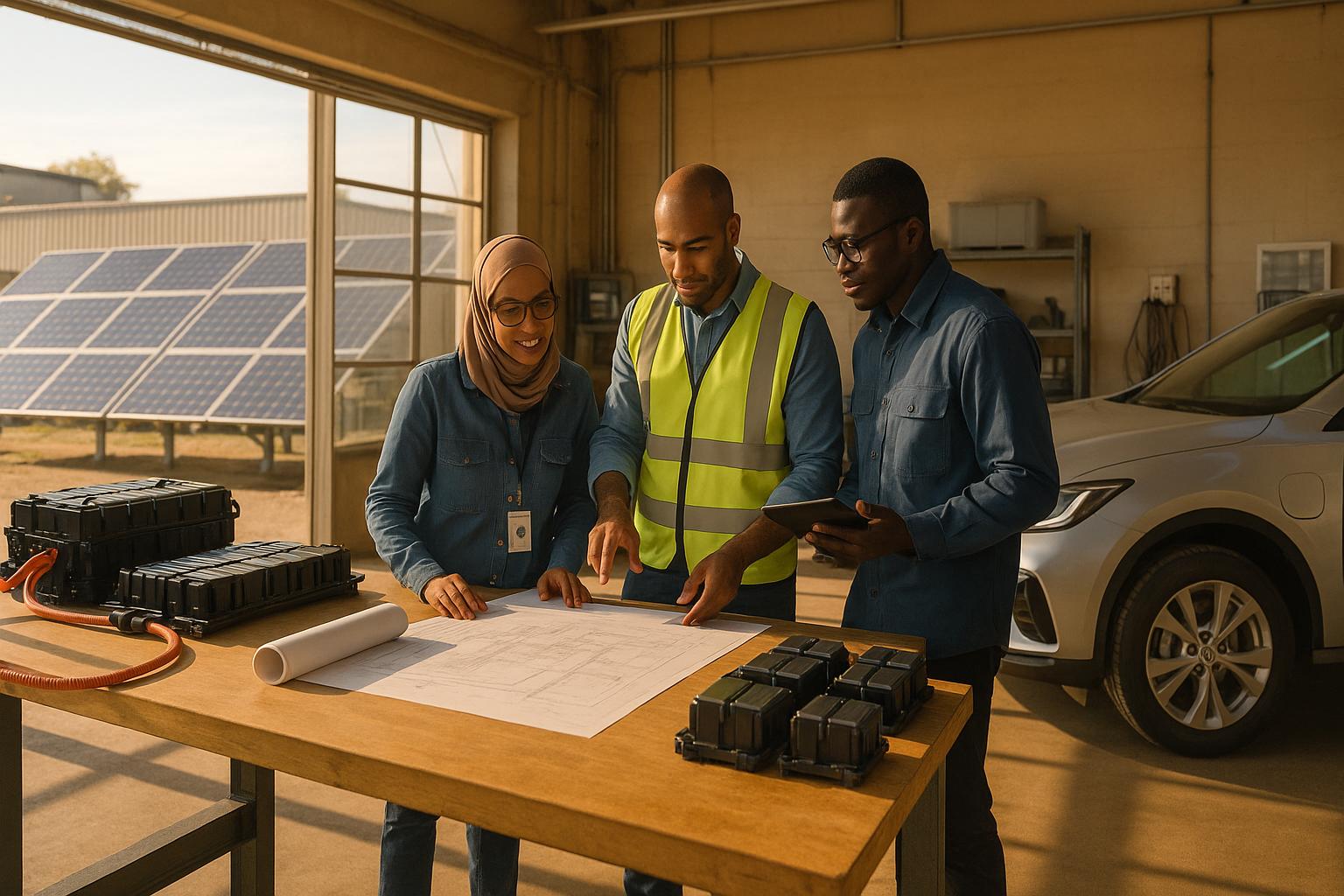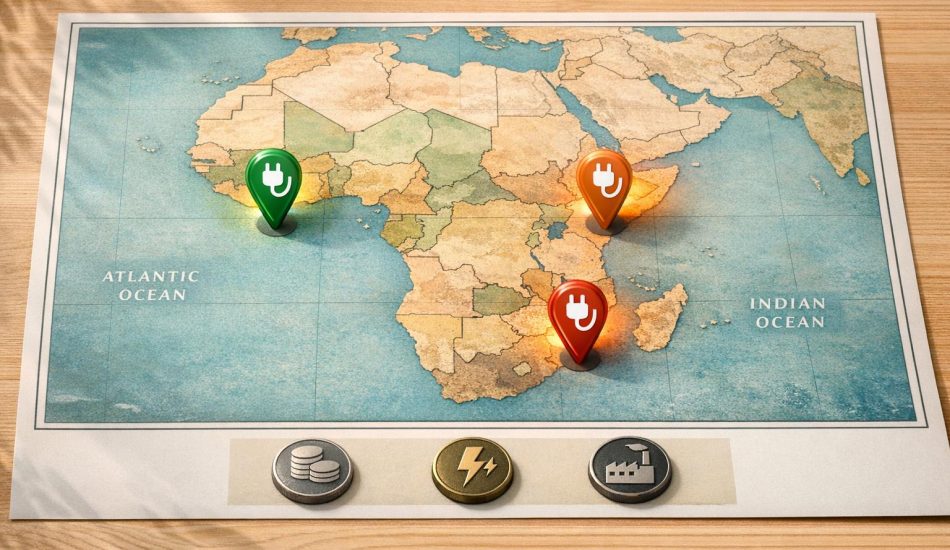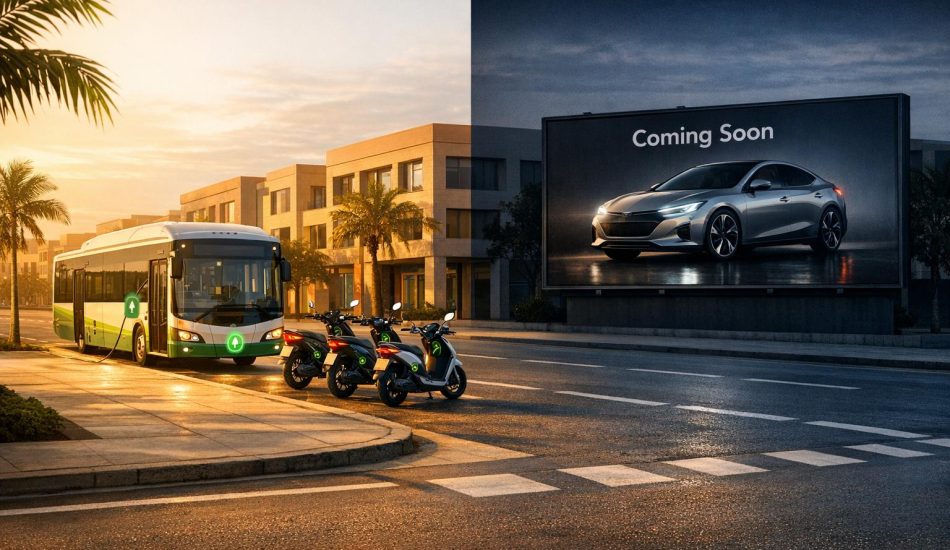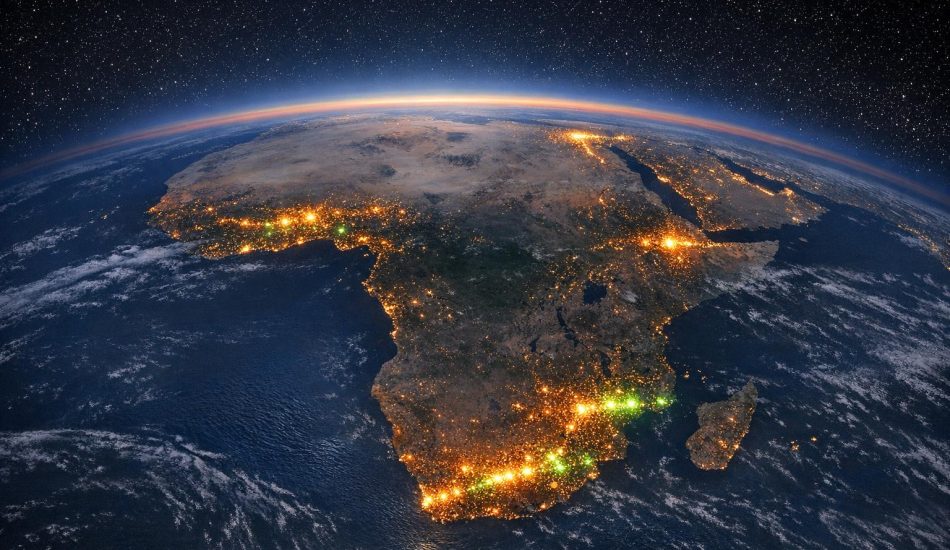
Africa is positioning itself as a key player in the global electric vehicle (EV) market, with Morocco, the Democratic Republic of Congo (DRC), and Zambia leading the charge. These three countries are leveraging their unique strengths to build a collaborative EV ecosystem:
- Morocco: Focused on EV manufacturing, leveraging its established automotive sector, renewable energy capacity, and government-backed incentives to attract global automakers.
- DRC: Rich in cobalt and other battery-critical minerals, the country is working to process resources locally and develop special economic zones for EV-related industries.
- Zambia: Capitalizing on its copper reserves, Zambia is aligning policies to support local mineral processing, EV component production, and regional trade.
Together, these nations are creating a blueprint for cross-border EV policy alignment, emphasizing resource sharing, industrial growth, and infrastructure development. This collaboration highlights the potential for African countries to strengthen their positions in the global EV supply chain while fostering regional economic integration.
1. Morocco
EV Manufacturing and Policy Frameworks
Morocco is building on its strong automotive industry and prime geographic position to establish itself as a key player in electric vehicle (EV) manufacturing. The country is making significant strides toward electric mobility, backed by government-led initiatives.
At the heart of this effort is Morocco’s National Electric Mobility Strategy, which promotes EV adoption through tax breaks for buyers and mandates for integrating electric models into government fleets. Streamlined regulations now make it easier for automakers to set up EV manufacturing facilities, attracting attention from global industry leaders.
Local Supply Chain Development
To support this shift, Morocco is focusing on creating a localized EV supply chain. Efforts include ramping up domestic production of EV components and expanding charging infrastructure. Technical training programs are also being introduced to develop expertise in EV maintenance and battery technology, ensuring a skilled workforce to meet future demands. These initiatives encourage local sourcing and boost industrial growth.
2. Democratic Republic of Congo (DRC)
Mineral Resource Potential
The Democratic Republic of Congo (DRC) is well-known for its vast reserves of minerals critical to electric vehicles (EVs). Among these, cobalt stands out as a vital component for EV batteries. The country also boasts deposits of copper and other essential materials used in battery production.
To maximize the benefits of its resources, the DRC has introduced policies encouraging mining companies to process a portion of their materials locally. This move aims to build expertise within the country and strengthen its industrial capabilities in mineral processing.
EV Manufacturing and Policy Frameworks
The DRC is taking steps to capitalize on its mineral wealth by establishing special economic zones. These zones offer incentives for activities like battery production, vehicle assembly, and technology transfer from international investors. By promoting local sourcing, these efforts aim to nurture a domestic industrial ecosystem closely tied to the EV sector. The focus extends to creating a strong foundation for a local supply chain to support these ambitions.
Local Supply Chain Development
Building a reliable local supply chain is key to advancing the DRC’s EV goals. Initiatives include setting up technical training centers focused on battery technology, mineral processing, and advanced manufacturing. Alongside these, there’s a push to improve infrastructure, with investments targeting power generation, transportation networks, and industrial parks.
The DRC is also exploring regional partnerships to create integrated value chains that tap into the strengths of neighboring countries. These cross-border collaborations align with broader efforts across Africa to harmonize EV policies. By sharing different stages of EV production across borders, the region can collectively enhance its capacity and competitiveness in the global EV market.
ZAMBIA,DRC, MOROCCO intensify engagements over EVs
sbb-itb-99e19e3
3. Zambia
Zambia is making strides in the electric vehicle (EV) space by using its well-established copper mining industry as a foundation. By aligning its resources and policies, the country is carving out a role in Africa’s evolving EV supply chain.
Mineral Resource Utilization
Copper is a key material in EV batteries and electric motors, and Zambia’s robust mining sector places it in a pivotal position to supply these critical components. To maximize the value of its resources, the government has introduced policies that encourage local processing and refinement. Zambia’s central location also makes it a strategic choice for regional mineral processing and partnerships that support EV-related industries.
EV Manufacturing and Policy Frameworks
Zambia is taking active steps to develop its EV manufacturing capabilities. The government has rolled out policies aimed at encouraging automotive assembly and the production of essential EV components. Special economic zones have been established to provide tax incentives and create a business-friendly regulatory environment for new investments. Additionally, Zambia is engaging with international EV manufacturers through technology transfer agreements, which aim to build local expertise and ensure its mineral wealth feeds directly into the production process. These efforts are setting the stage for a more integrated and efficient local supply chain.
Local Supply Chain Development
To support its ambitions, Zambia is focusing on workforce development and infrastructure improvements. Investments in technical education are equipping people with skills in battery technology, electrical engineering, and advanced manufacturing. At the same time, upgrades to infrastructure are connecting mining areas with industrial hubs, ensuring smoother operations. Zambia is also prioritizing regional partnerships to create interconnected value chains and strengthen local supplier networks, helping the country gradually build a more self-reliant and competitive EV ecosystem.
Pros and Cons
The efforts to develop collaborative electric vehicle (EV) policies in Morocco, the Democratic Republic of the Congo (DRC), and Zambia highlight both the opportunities and challenges of growing Africa’s EV ecosystem.
In the DRC, managing its vast mineral resources is crucial to its role in the EV supply chain. With an abundance of key materials for battery production, the country holds immense potential. However, issues like political instability, weak infrastructure, and governance concerns could hinder progress. These hurdles emphasize how challenging it can be to turn resource wealth into a unified EV strategy.
Meanwhile, Morocco and Zambia bring unique strengths to the table that complement the DRC’s resource-rich position. Together, their experiences point to the importance of balancing resource management with coordinated industrial development across the continent.
Conclusion
The electric vehicle (EV) policy collaboration between Morocco, the DRC, and Zambia offers a practical blueprint that other African nations can follow. The standout takeaway from this partnership is the power of combining individual strengths rather than competing in isolation.
Morocco’s well-established automotive industry complements the DRC and Zambia’s rich reserves of cobalt, copper, and lithium. Together, they create a connected value chain that keeps more economic benefits within the continent.
A key driver of success here is policy alignment. The African Continental Free Trade Area (AfCFTA) provides the foundation for this integration, addressing regulatory gaps and establishing consistent trade rules. It demonstrates that coordinated efforts across nations are far more effective than fragmented, country-specific policies.
This unified policy approach also sets the stage for smarter infrastructure development. By working together, countries can streamline planning, reduce costs, and allow each nation to focus on its strengths while ensuring smooth cross-border connectivity.
For Africa’s growing EV ecosystem, platforms like EV24.africa play a crucial role by improving market access and transparency across all 54 countries. As policy frameworks become more aligned, having a reliable marketplace infrastructure will be essential for connecting buyers and sellers in this rapidly evolving industry.
The collaboration between Morocco, the DRC, and Zambia underscores that Africa’s EV future will thrive through coordinated strategies that leverage the continent’s diverse strengths.
FAQs
How are Morocco, the DRC, and Zambia working together to strengthen Africa’s EV supply chain?
Morocco, the Democratic Republic of Congo (DRC), and Zambia are joining forces to establish a strong electric vehicle (EV) supply chain in Africa, each contributing their unique strengths. Morocco is aiming to ramp up EV production, targeting up to 100,000 units annually by 2025, while also investing in facilities to produce EV batteries. On the other hand, the DRC and Zambia, which are rich in essential minerals like cobalt and copper, are focusing on refining these resources and incorporating them into special economic zones to support EV production.
This collaboration is anchored by a memorandum of understanding, designed to align policies, share resources, and build a regional value chain. By combining Morocco’s expertise in manufacturing with the DRC and Zambia’s abundant mineral resources, this partnership is laying the groundwork for a stronger and more sustainable EV industry across Africa.
What obstacles do Morocco, the DRC, and Zambia face in advancing their EV policies, and how are they working together to overcome them?
Morocco, the DRC, and Zambia are navigating several hurdles as they work to shape their electric vehicle (EV) policies. Among the key challenges are the lack of sufficient charging infrastructure, varying regulatory frameworks, and the complexity of aligning policies across borders. These factors can delay the widespread adoption of EVs and make regional collaboration more difficult.
To tackle these barriers, the three nations are joining forces on a shared EV roadmap. This plan includes setting up special economic zones to encourage EV manufacturing and building regional value chains to simplify production and distribution processes. Additionally, they are engaging in capacity-building workshops and working to align their policies, ensuring smoother execution of their collective goals. Through this collaboration, they aim to establish a more unified and efficient EV ecosystem for the region.
How does the partnership between Morocco, the DRC, and Zambia impact Africa’s role in the global EV market?
The collaboration between Morocco, the DRC, and Zambia is setting the stage for Africa to play a bigger role in the global electric vehicle (EV) market. By pooling their resources – particularly their wealth of essential battery minerals – these nations are building a framework to support EV production and infrastructure across the region.
This partnership focuses on fostering local manufacturing, creating consistent standards, and building infrastructure that supports EV adoption. Beyond that, it aims to make Africa a more appealing destination for international investors, speeding up the shift toward electric mobility while enhancing the continent’s standing in the competitive global EV market.




